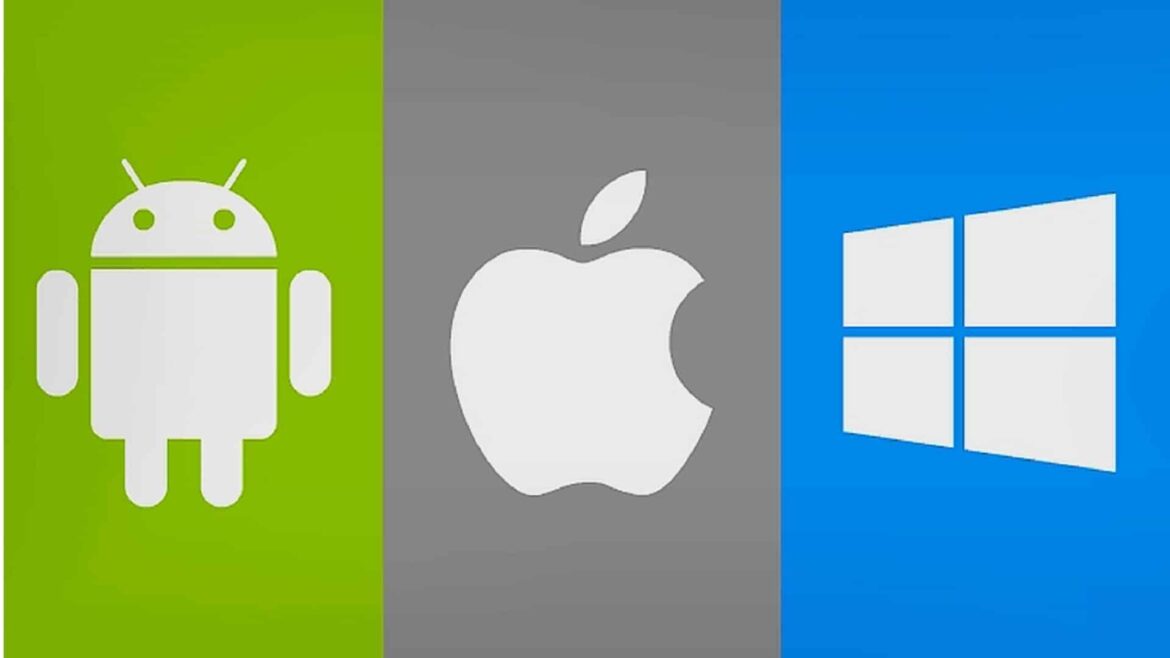Mobile phones have become an integral part of our everyday lives, and at their heart is the operating system. But which systems are available, and what are their advantages and disadvantages? We offer a detailed overview of the most common mobile phone operating systems and help you find the right one for your needs.
What are the most common operating systems for mobile phones?
In a world where smartphones have become commonplace, the operating system is the central element of every device. It determines how we interact with our mobile phone and which functions are available to us. But which operating systems are actually available and how do they differ?
- Android is the most widely used operating system worldwide and offers a wide range of customization options. It is known for its user-friendliness and the large selection of apps available in the Google Play Store. Android is particularly popular with users who want to customize their device.
- iOS, Apple’s operating system, is known for its intuitive operation and high security standards. It is designed specifically for iPhones and offers seamless integration with other Apple devices. The apps in the App Store are often known for their high quality and optimization.
- Windows Phone was once an alternative to Android and iOS, but has lost ground in recent years. This operating system was officially discontinued in 2019. Microsoft no longer supports the system, and most of the app store content has disappeared.
- KaiOS is an operating system for so-called feature phones, i.e., less powerful mobile phones. It offers basic smartphone functions such as a browser and apps, but is specifically designed for users who prefer a simple and inexpensive device. KaiOS is still in use, but is losing market share as fewer and fewer people buy simple mobile phones.
- HarmonyOS (Huawei): Widely used in China since 2021 (e.g., Huawei devices). Less successful internationally, but technically relevant.
- LineageOS / GrapheneOS (open source / alternative Android distributions): Particularly interesting for tech enthusiasts or people who focus on privacy and security.
How to choose the right operating system?
Choosing an operating system for your mobile phone depends largely on your personal needs and preferences. Each system has its own strengths and weaknesses that need to be considered.
- If you value flexibility and customization, Android is an excellent choice. It allows you to tailor the design and functionality of your smartphone to your liking and offers a wide range of devices in various price categories.
- For users looking for a simple and user-friendly system, iOS is ideal. It offers a consistent and high-quality user experience with regular updates and a strong security infrastructure.
- KaiOS is particularly suitable for those who need a simple cell phone without complex features. It offers basic features such as a browser and messaging, but is less suitable for users who value a wide selection of apps and high performance.
- HarmonyOS from Huawei is an operating system that particularly enhances collaboration between different device categories, delivers high performance and stability, and offers security and innovative operating concepts.
- GrapheneOS is often considered the best option for maximum security and privacy, while LineageOS offers broader compatibility and an Android experience without Google, but with less robust security features.
What are the advantages and disadvantages of each system?
Each operating system has specific advantages and disadvantages that can affect your experience depending on your usage and personal needs. It is important to understand these aspects in order to make an informed decision.
- Android offers a high degree of customization and a wide range of apps, but security vulnerabilities can arise on some devices as manufacturers often make their own modifications.
- iOS is known for its security and user-friendliness, but the devices are usually more expensive and offer fewer options for customization.
- KaiOS is inexpensive and easy to use, but it offers limited features and is less suitable for users who want a full smartphone experience.
What does the future hold for mobile operating systems?
The future of mobile operating systems will be shaped by technological advances and changing user needs. New developments could complement or even replace existing systems.
- The spread of 5G technology will further increase the performance of smartphones and could give rise to new operating systems designed specifically for this technology.
- Artificial intelligence is increasingly being integrated into operating systems to provide personalized user experiences and expand the functionality of smartphones.
- Open source operating systems could gain in importance as they offer flexibility and adaptability, which is particularly attractive to developers and tech-savvy users. The LineageOS / GrapheneOS operating systems would be suitable here.
- Data protection and security will continue to be key issues in the future, with operating systems increasingly designed to better protect personal information and preserve user privacy.

